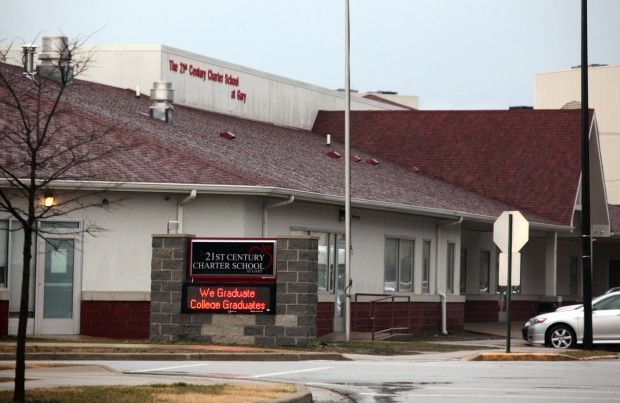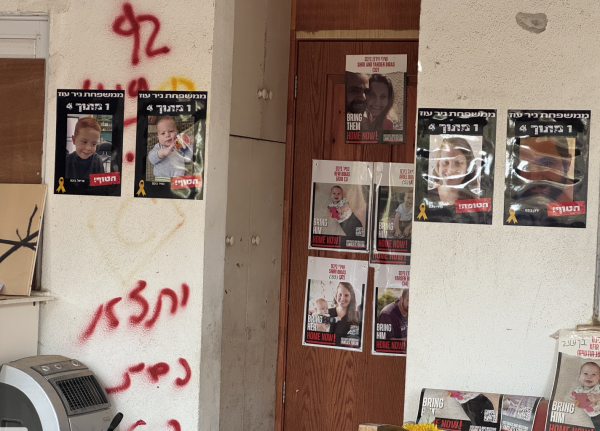Colleges Shouldn’t Accept COVID Era Standardized Tests
John J. Watkins, The Northwest Indiana Times
Latin Senior Vivi Kaufman’s Indiana Test Site
More than 1,450 US colleges and universities have gone test optional in response to COVID-19. But “optional” isn’t enough.
In a survey of 48 Latin seniors, 70.6% reported that they still felt pressure to test. This is not surprising, given that many have poured hours into preparation in the belief that their score could strengthen their applications. Latin’s test prep instructor, Lauren Wetherbee, said, “A great test score wasn’t going to ensure a student admission to a particular school, just as a less than stellar test score won’t necessarily keep a student out of a particular school.” At the same time, she said, “Most students want to do anything they can to make themselves stand out.”
Even if going test optional reduces the pressure coming from colleges, students put that pressure on themselves. Latin senior Vivi Kaufman has had two tests cancelled due to COVID-19 and is now signed up for the September ACT. She said, “My test score will make my academics look a lot better, and I definitely do feel pressure to still take the test.” Vivi is not alone. Alexandra Fields, one of Latin’s three college counselors, said, “Some students are really really strong standardized test takers and they haven’t had a chance to take it yet and they feel really frustrated.”
Clearly, test optional policies are not stopping Latin students from taking tests. And students are willing to go to extreme lengths to do so. Of the surveyed seniors that did not test before March, 60.5% reported that they either tried to leave the state to test, left the state to test, or would do so if it was the only testing option. And with the ACT site rerouting students to test centers as far as Kansas or South Dakota, for many, leaving the state could well be their only option.
Rising junior Ava Parekh took the July ACT in Burlington, Wisconsin. Her testing room had ten students, and they wore masks until they got to their desks, which were spaced six feet apart. However, the room had no windows and the door was closed. Ava said, “I got there at 7:30am and there were at least 100 people there. We were sitting in a cafeteria and they did not tell me to sit six feet apart from anyone and nothing was marked.” During breaks, she added, “We had to put masks back on but we were allowed to stand in the hallway and talk to people. There were no social distancing guidelines at that point.” While students wore masks for most of the breaks, they were allowed to take them off to eat and drink. Wisconsin has since been added to Illinois’ list of COVID-19 hotspots, which raises concerns that students should not have entered the state.
Other students traveled out of state only to have their tests cancelled. After her April ACT was canceled, Vivi signed up for the July test in Gary, Indiana. She said, “We got there and about 30 other kids and their parents were waiting and we couldn’t get into the school building because all of the doors were locked and there weren’t any proctors or anything. My dad called the ACT company and a couple of other parents did as well and the ACT company said we have no record of this test being cancelled so there’s nothing we can do.” Vivi had to drive out of state, potentially exposing herself to the virus, only to wait in a parking lot.
This lack of testing opportunities only furthers inequality in the college admissions process. Vivi said, “Not everybody has the resources to drive five plus hours to a test site. People have parents who are working, the only test is hours away, it’s not really accessible for a lot of people.” Allowing SAT and ACT testing to continue during the pandemic puts a strain on families as students put pressure on themselves to test.
Going test optional has done little to discourage students from testing, and has driven them to sit in crowded rooms in faraway states in hopes of a potential leg up in college admissions. If colleges and universities truly wanted to slow the spread of COVID-19, they would have either refused to accept any standardized tests, or refused to accept tests from after March of 2020. Then, and only then, would students have put their own and their community’s health before their college admissions file.

Bea Parr (‘21) is a senior at Latin and is very excited about serving her second year as one of The Forum’s Editors-in-Chief. In her articles, she...




















































Robert Igbokwe • Aug 20, 2020 at 8:44 am
As always, this is a thoughtful, well-written piece, Bea!! I love those closing lines: “Then, and only then, would students have put their own and their community’s health before their college admissions file.” These are such confusing times for every aspect of society, but as much as it feels like it’s only happening to us, we must remember that our situation is almost universal and the effects of our actions are far-reaching.